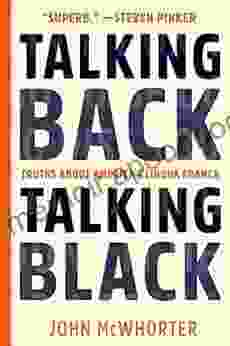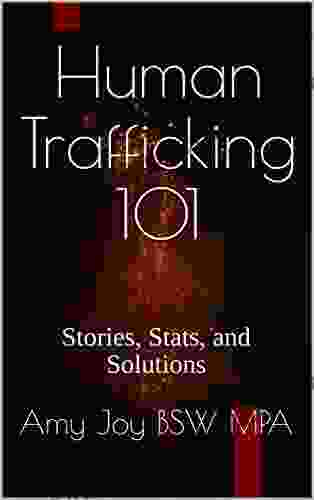Truths About America Lingua Franca: Unraveling the Complexities of English in the United States

: Exploring the Linguistic Tapestry of America
The United States of America is a nation of many tongues, a vibrant tapestry of languages woven together by the threads of history and immigration. Among this linguistic mosaic, one language stands out as the lingua franca, the common thread that binds Americans together: English. Yet, the English spoken in the United States is not a monolithic entity; it is a kaleidoscope of dialects, accents, and variations, each reflecting the unique cultural and regional identities that shape the American experience.
This article delves into the fascinating world of American English, exploring its origins, evolution, and the diverse tapestry of dialects and variations that make it such a rich and captivating language. We will uncover the forces that have shaped American English, from the arrival of the first European settlers to the waves of immigration that have reshaped the nation's linguistic landscape. We will also examine the social, cultural, and regional factors that have given rise to the distinct dialects and accents that characterize American English today.
4.5 out of 5
| Language | : | English |
| File size | : | 1353 KB |
| Text-to-Speech | : | Enabled |
| Screen Reader | : | Supported |
| Enhanced typesetting | : | Enabled |
| X-Ray | : | Enabled |
| Word Wise | : | Enabled |
| Print length | : | 192 pages |
| Hardcover | : | 392 pages |
| Item Weight | : | 1.46 pounds |
| Dimensions | : | 6.44 x 0.86 x 9.05 inches |
The Genesis of American English: Roots in the British Isles
The roots of American English can be traced back to the British Isles, where the English language emerged from a blend of Germanic and Romance influences. The earliest English settlers who arrived in the New World brought with them the language of their homeland, which gradually evolved over time in response to the new environment and the diverse influences encountered on American soil.
The American Revolution played a pivotal role in shaping the distinct identity of American English. The break from British rule fostered a desire for linguistic independence, and American writers and intellectuals began to consciously adapt the English language to reflect the values and experiences of the new nation. Noah Webster's influential dictionary, published in 1828, codified many of these changes, establishing a standardized form of American English that differed from its British counterpart in both spelling and pronunciation.
The Crucible of Immigration: Shaping a Diverse Linguistic Landscape
Throughout its history, the United States has been a melting pot of cultures, with waves of immigrants from all corners of the globe bringing their own languages and linguistic influences to the American shores. These immigrants left an indelible mark on the English language spoken in the United States, contributing a rich tapestry of words, phrases, and pronunciations that have become an integral part of American English today.
German immigration, particularly in the 19th century, had a significant impact on the vocabulary and grammar of American English. Words like "kindergarten," "delicatessen," and "hamburger" entered the American lexicon as a result of German influence. Similarly, the arrival of Spanish-speaking immigrants from Mexico and other Latin American countries has left a lasting imprint on American English, particularly in the Southwestern United States. Words like "taco," "salsa," and "gracias" have become commonplace in American speech, reflecting the growing Hispanic population and the cultural exchanges that have taken place between English and Spanish speakers.
Regional Dialects: A Symphony of Linguistic Diversity
As the United States expanded westward, the English language underwent regional variations, influenced by the unique地理,文化,and settlement patterns of different areas. These regional dialects, each with its own distinctive pronunciation, vocabulary, and grammar, reflect the diverse tapestry of American culture.
The New England dialect, spoken in the Northeastern United States, is characterized by its characteristic "broad a" pronunciation, as in the words "bath" and "grass." The Southern dialect, prevalent in the southeastern states, is known for its drawling intonation and the use of double modals, such as "might could" and "should would." The Midland dialect, spoken in the central and northern states, bridges the gap between the New England and Southern dialects, exhibiting a more neutral pronunciation and a blend of linguistic features from both regions.
In addition to these major regional dialects, countless sub-dialects and local variations exist throughout the United States, each contributing to the rich linguistic diversity of the nation. These local dialects often reflect the unique history, culture, and ethnic makeup of the communities in which they are spoken.
Social and Cultural Factors in Linguistic Variation
Beyond regional influences, social and cultural factors also play a significant role in shaping the variation in American English. Educational level, socioeconomic status, and ethnic background all contribute to the way people speak and use language.
For example, individuals with higher levels of education tend to use more standard and formal English, while those with lower levels of education may use more informal or non-standard varieties. Similarly, socioeconomic status can influence language use, with individuals from more affluent backgrounds typically using more prestigious and socially acceptable forms of speech. Ethnic background also plays a role, as individuals from different cultural and linguistic backgrounds may incorporate elements of their native languages and cultural experiences into their English speech.
The Impact of Technology and Media on Linguistic Evolution
In the 21st century, technology and media have become powerful forces in shaping the evolution of American English. The rise of social media, instant messaging, and the internet has led to the emergence of new forms of communication and language use.
The widespread use of texting and social media platforms has popularized the use of abbreviations, emoticons, and slang, which have gradually made their way into everyday speech. The internet has also facilitated the dissemination of information and ideas across bFree Downloads, leading to increased exposure to and adoption of new words and phrases.
Television and film have also played a significant role in shaping the way Americans speak and use language. Popular television shows and movies often feature characters with distinct dialects and accents, which can influence the speech patterns of viewers. Media can also popularize new words and phrases, which can quickly spread throughout the population.
The Future of American English: A Dynamic and Evolving Language
The future of American English is as uncertain as it is exciting. The language is constantly evolving, influenced by the dynamic forces of immigration, technology, and social change. As the United States continues to welcome immigrants from around the world, new words, phrases, and linguistic influences will continue to enrich the American English lexicon.
Technology will also continue to play a major role in shaping the future of American English. The rise of artificial intelligence and machine translation could potentially lead to the development of new forms of communication and language use. It is also possible that American English will become more standardized and uniform as a result of increased globalization and the widespread use of technology.
Ultimately, the future of American English lies in the hands of its speakers. The choices we make about how we use language will shape its evolution in the years and decades to come. Whether we choose to embrace new words and phrases or preserve traditional forms of speech, the future of American English is a story that we will write together.
: Embracing the Rich Tapestry of American English
The English language spoken in the United States is a vibrant and dynamic tapestry, woven together by the threads of history, immigration, and regional and social diversity. From its roots in the British Isles to its evolution on American soil, American English has undergone constant change and adaptation, reflecting the unique experiences and identities of the American people.
Today, American English is a diverse and multifaceted language, with regional dialects and variations that reflect the nation's rich cultural heritage. It is a language that is constantly evolving, shaped by the forces of immigration, technology, and social change. As we look to the future, let us embrace the rich tapestry of American English, celebrating its diversity and dynamism as a reflection of the nation's own vibrant and ever-changing story.
4.5 out of 5
| Language | : | English |
| File size | : | 1353 KB |
| Text-to-Speech | : | Enabled |
| Screen Reader | : | Supported |
| Enhanced typesetting | : | Enabled |
| X-Ray | : | Enabled |
| Word Wise | : | Enabled |
| Print length | : | 192 pages |
| Hardcover | : | 392 pages |
| Item Weight | : | 1.46 pounds |
| Dimensions | : | 6.44 x 0.86 x 9.05 inches |
Do you want to contribute by writing guest posts on this blog?
Please contact us and send us a resume of previous articles that you have written.
 Book
Book Novel
Novel Page
Page Chapter
Chapter Text
Text Story
Story Genre
Genre Reader
Reader Library
Library Paperback
Paperback E-book
E-book Magazine
Magazine Newspaper
Newspaper Paragraph
Paragraph Sentence
Sentence Bookmark
Bookmark Shelf
Shelf Glossary
Glossary Bibliography
Bibliography Foreword
Foreword Preface
Preface Synopsis
Synopsis Annotation
Annotation Footnote
Footnote Manuscript
Manuscript Scroll
Scroll Codex
Codex Tome
Tome Bestseller
Bestseller Classics
Classics Library card
Library card Narrative
Narrative Biography
Biography Autobiography
Autobiography Memoir
Memoir Reference
Reference Encyclopedia
Encyclopedia Robyn Maynard
Robyn Maynard Kathrin Leuze
Kathrin Leuze Kay Brellend
Kay Brellend Liz Cademy
Liz Cademy Ellen Bass
Ellen Bass Carmen Jenner
Carmen Jenner Kate Fitzpatrick Harnish
Kate Fitzpatrick Harnish Will Reyes
Will Reyes Brian Saady
Brian Saady Pamela Stewart
Pamela Stewart Larry Richards
Larry Richards Wj Orion
Wj Orion Ahsan Nabi Khan
Ahsan Nabi Khan Plum Sykes
Plum Sykes Eli Hastings
Eli Hastings Mimi Love
Mimi Love Lex Thomas
Lex Thomas Pamela S Karlan
Pamela S Karlan Kathleen Ossip
Kathleen Ossip Hillary Hawkins
Hillary Hawkins
Light bulbAdvertise smarter! Our strategic ad space ensures maximum exposure. Reserve your spot today!
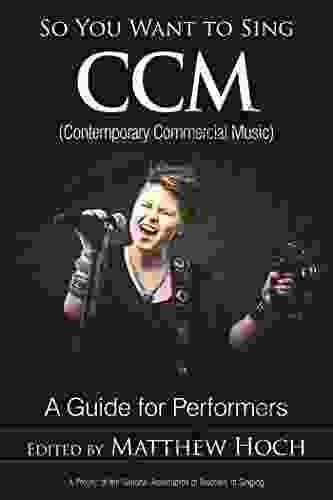
 Jonathan FranzenSo You Want To Sing CCM: The Ultimate Guide to Contemporary Commercial Music
Jonathan FranzenSo You Want To Sing CCM: The Ultimate Guide to Contemporary Commercial Music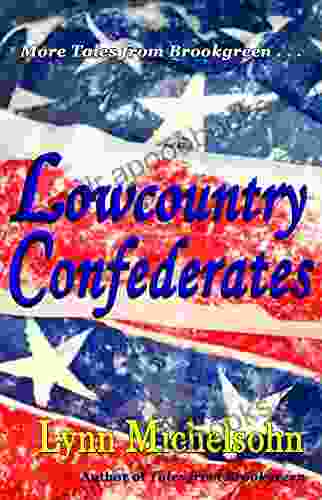
 Jimmy ButlerUnveiling the Hidden Histories of the Lowcountry: "Rebels, Yankees, and South...
Jimmy ButlerUnveiling the Hidden Histories of the Lowcountry: "Rebels, Yankees, and South... Vladimir NabokovFollow ·9.3k
Vladimir NabokovFollow ·9.3k Henry David ThoreauFollow ·4.4k
Henry David ThoreauFollow ·4.4k Ron BlairFollow ·18.8k
Ron BlairFollow ·18.8k Braden WardFollow ·19.2k
Braden WardFollow ·19.2k Rubén DaríoFollow ·14.7k
Rubén DaríoFollow ·14.7k Glen PowellFollow ·6.7k
Glen PowellFollow ·6.7k Mikhail BulgakovFollow ·18.6k
Mikhail BulgakovFollow ·18.6k Mario SimmonsFollow ·8k
Mario SimmonsFollow ·8k

 Jamie Bell
Jamie BellUnlock Your Mind with "Ever Wonder Why And Other...
Prepare to...

 Robert Frost
Robert Frost30 Day Betting Challenge: Transform Your Betting Habits...
Are you tired of...

 Derrick Hughes
Derrick HughesWhat Is Victory In War? Unraveling the Enigma of Triumph
The Illusion...

 Jesse Bell
Jesse BellThe Shooters: A Gripping Presidential Agent Novel That...
Enter the Shadowy World of...
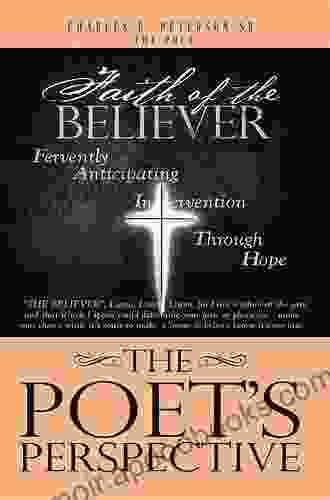
 Ernest Hemingway
Ernest HemingwayUnlocking the Theological Depths of Paul Claudel: An...
Prepare to embark on an...
4.5 out of 5
| Language | : | English |
| File size | : | 1353 KB |
| Text-to-Speech | : | Enabled |
| Screen Reader | : | Supported |
| Enhanced typesetting | : | Enabled |
| X-Ray | : | Enabled |
| Word Wise | : | Enabled |
| Print length | : | 192 pages |
| Hardcover | : | 392 pages |
| Item Weight | : | 1.46 pounds |
| Dimensions | : | 6.44 x 0.86 x 9.05 inches |


